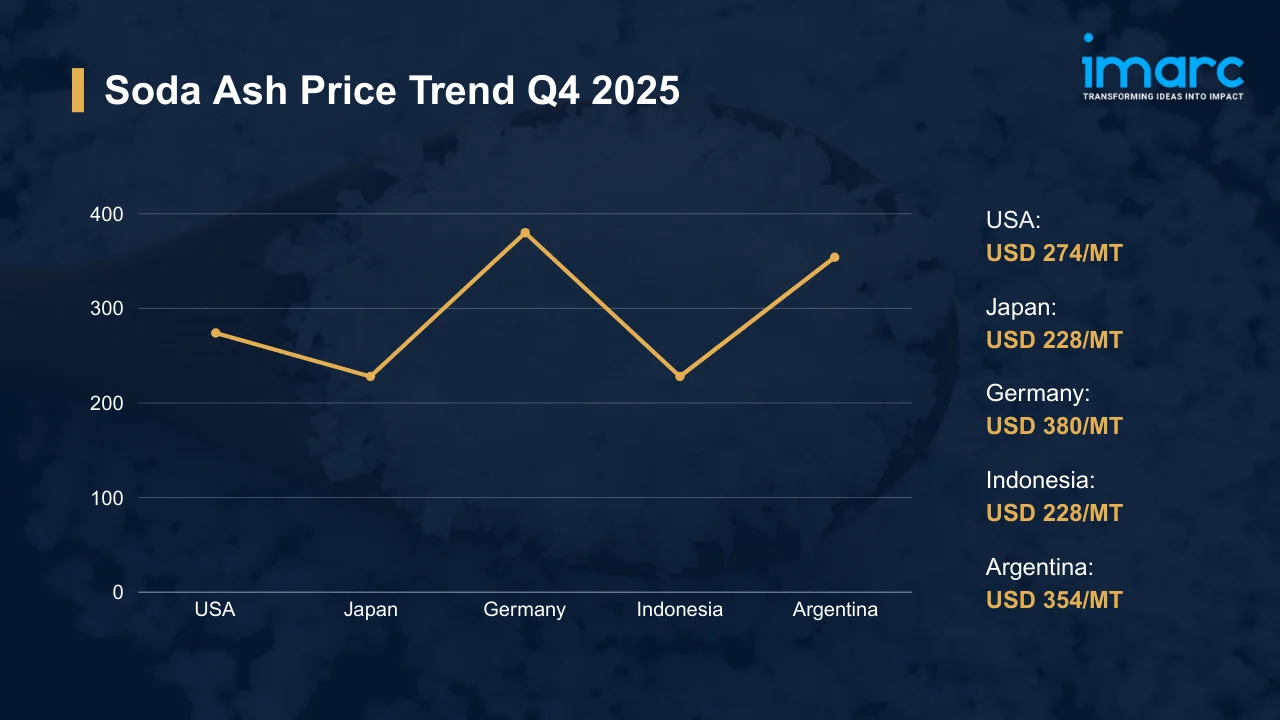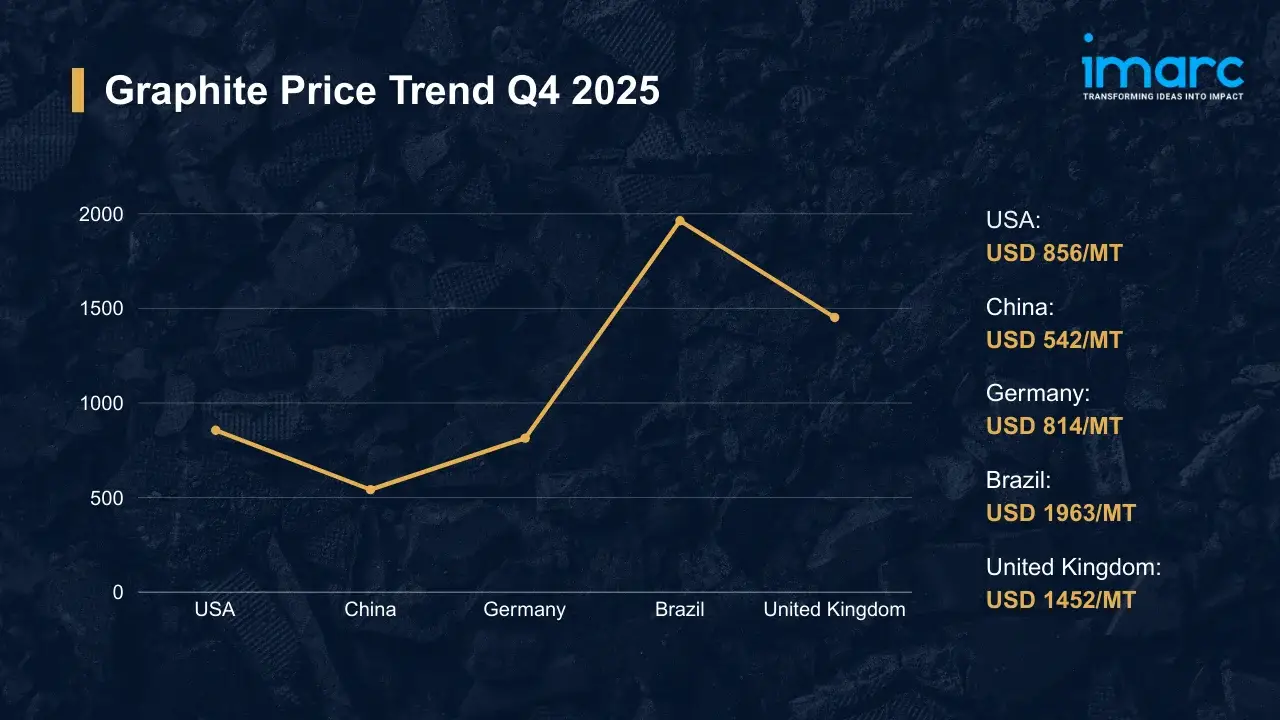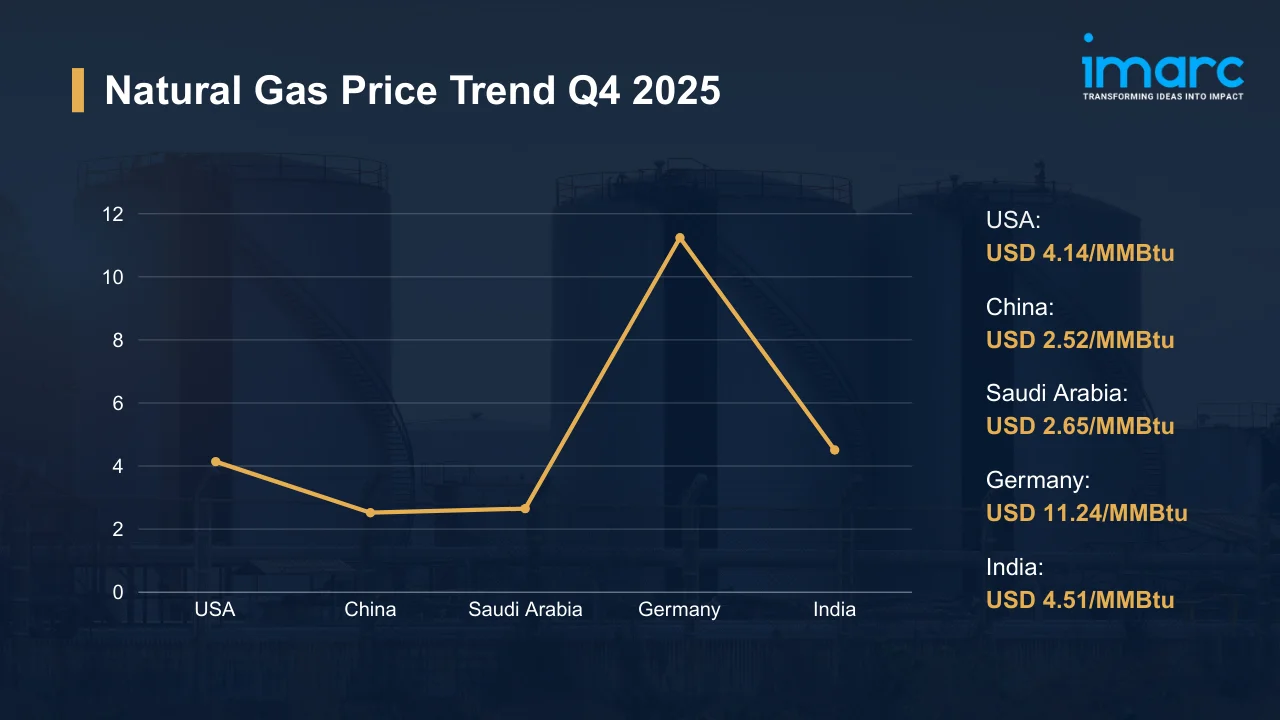EPDM Rubber Prices in Q2 2025: Global Trends and Forecast
01-Aug-2025_11zon.webp)
The global EPDM rubber market experienced a mix of price movements and supply chain dynamics, according to the latest IMARC Group's report titled EPDM Rubber Price Trend, Index and Forecast Data Report 2025 Edition that provides updated insights for Q2 2025. The report highlights regional price variations, influenced by fluctuations in raw material costs, trade disruptions, and shifting demand-supply patterns across major markets. Key regions shaping the market trends include North America, Asia Pacific, and Europe, where prices of key raw materials such as ethylene and propylene contributed to reduced production costs.
Q2 2025 EPDM Rubber Prices:
- USA: USD 2560/MT
- China: USD 2290/MT
- Germany: USD 2831/MT
- Brazil: USD 2363/MT
- South Africa: USD 3672/MT
.webp)
To access real-time prices Request Sample
The current EPDM rubber prices underscore the material’s vital role in high-performance industries such as automotive and construction, with consistent demand and supply chain pressures contributing to a stable or upward global price trend.
Key Regional Price Trends and Market Drivers:
USA
EPDM rubber prices in the USA reached USD 2560/MT in June 2025. The decline in feedstock costs, particularly for ethylene and propylene, helped lower production expenses, resulting in moderate price levels for the final product.
China
China’s EPDM prices settled at USD 2290/MT in Q2 2025. Despite rising domestic production costs, ample supply from imports prevented major price increases. However, exports declined due to weaker international demand and the impact of US tariffs.
Germany
In Germany, EPDM rubber prices stood at USD 2831/MT during the second quarter of 2025. Stable domestic production and reliable import availability ensured consistent supply, while steady demand from the automotive and construction sectors helped maintain market balance.
Brazil
Brazil recorded EPDM rubber prices at USD 2363/MT in June 2025. The market faced logistical hurdles with delayed imports, creating concerns over potential shortages that could affect downstream manufacturing activities.
South Africa
South Africa witnessed the highest regional EPDM rubber price at USD 3672/MT in Q2 2025. Trade disruptions, including shipping delays and global tensions, led to supply instability and price volatility, although demand from key end-use industries remained firm.
EPDM Rubber Industry Overview:
The global EPDM rubber market reached a value of USD 3.51 Billion in 2024 and is projected to grow to USD 6.08 Billion by 2033, expanding at a CAGR of 5.99% during 2025-2033. This growth reflects the material’s essential role in high-performance sectors, particularly automotive and construction, where reliability and resistance to heat, weathering, and ozone are critical. The varied pricing patterns are influenced by feedstock costs, trade dynamics, and sectoral demand, particularly from high-performance applications.
The market growth is driven by the rising need for durable sealing and insulation materials, increasing adoption in vehicle manufacturing, and expanding infrastructure development projects. In addition, the focus on energy-efficient buildings, advancements in polymer technology, and consistent performance in harsh environments are further propelling global demand for EPDM rubber.
Recent Market Trends and Industry Analysis:
The widespread adoption of EPDM rubber across industries such as automotive, construction, electrical, HVAC, and marine is a key factor driving global market growth. Its superior compression set resistance, durability, and weatherproofing qualities make it ideal for applications like automotive seals, insulation materials, and roofing systems. Rising investments in the automotive sector, facility expansions, and efforts to localize advanced component manufacturing are further supporting demand for EPDM rubber.
Additionally, increasing construction activities and the material’s growing use in sustainable infrastructure projects are fueling market expansion. EPDM rubber’s thermal stability and resistance to chemicals and moisture make it suitable for electrical applications, especially in wire and cable insulation. Moreover, stringent environmental regulations and energy efficiency standards are encouraging the use of high-performance materials, contributing to a positive market outlook.
Strategic Forecasting and Analysis:
IMARC’s report incorporates forecasting models that project near-term price movements based on evolving trade policies, raw material supply, and technological trends. These tools enable businesses to mitigate risk, enhance sourcing strategies, and support long-term planning.
Key Features of the Report:
- Price Charts and Historical Data
- FOB and CIF Spot Pricing
- Regional Demand-Supply Assessments
- Port-Level Price Analysis
- Sector-Specific Demand and Supply Insights








.webp)




.webp)












